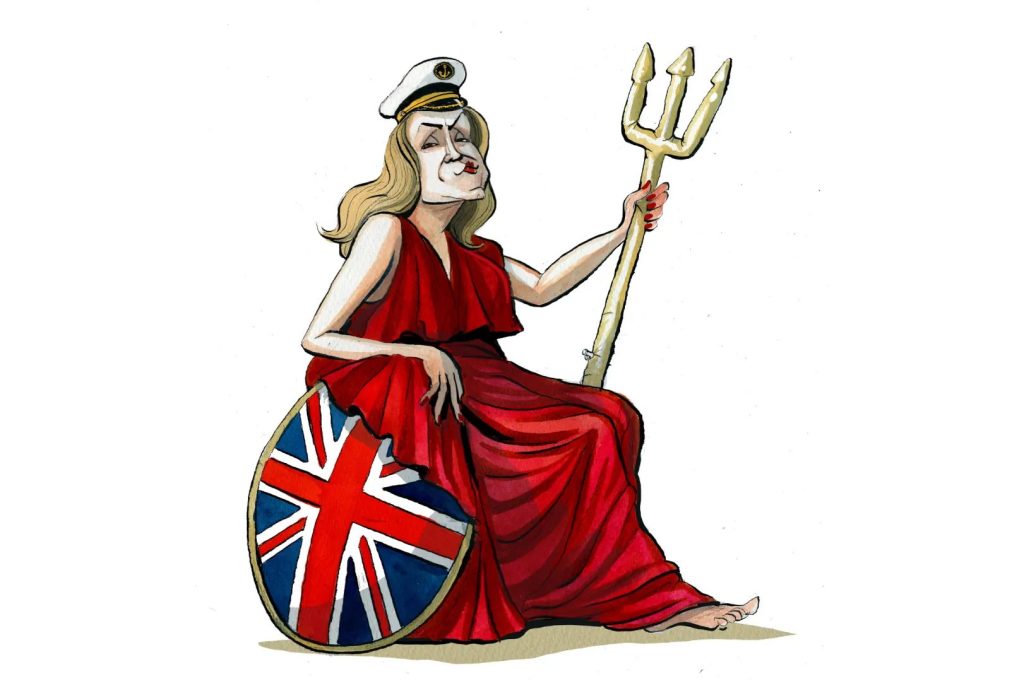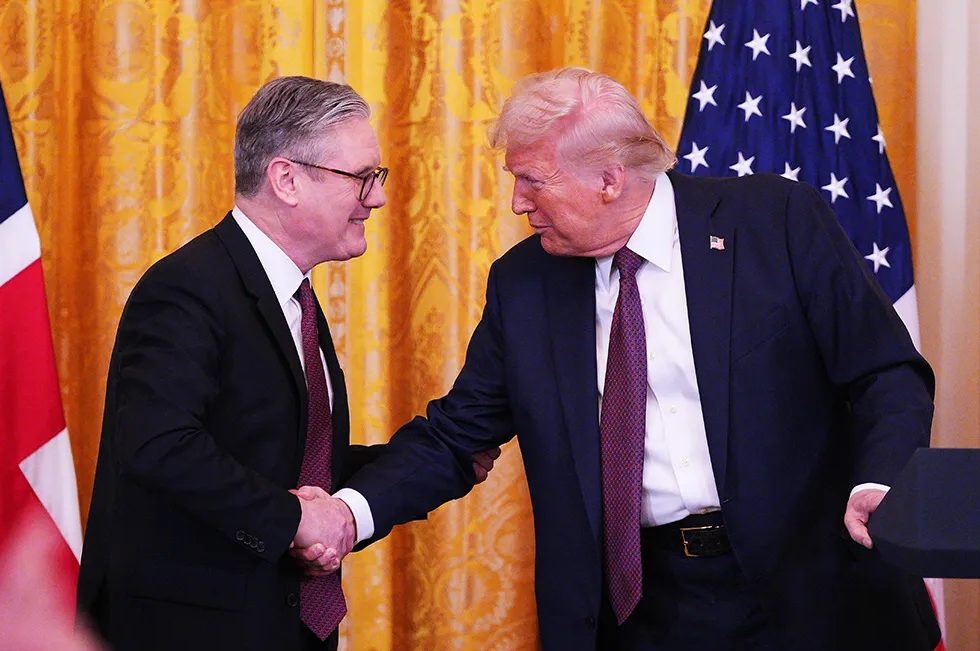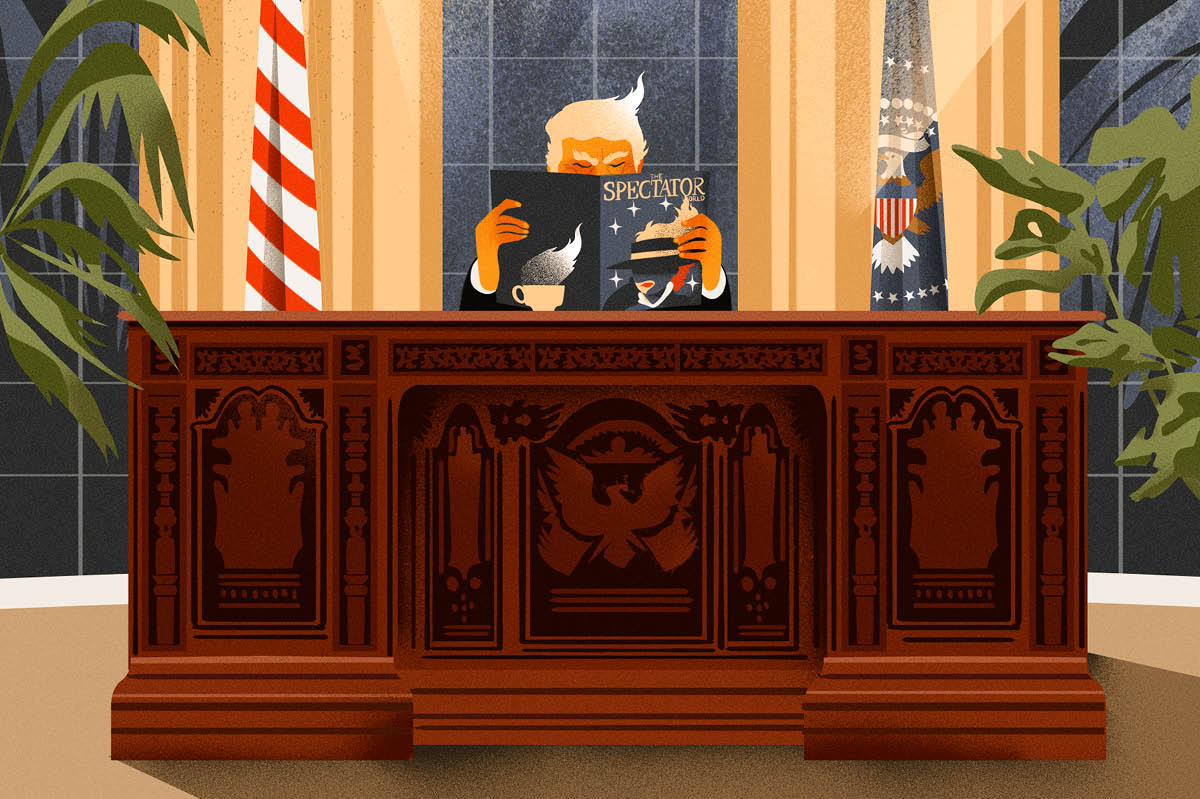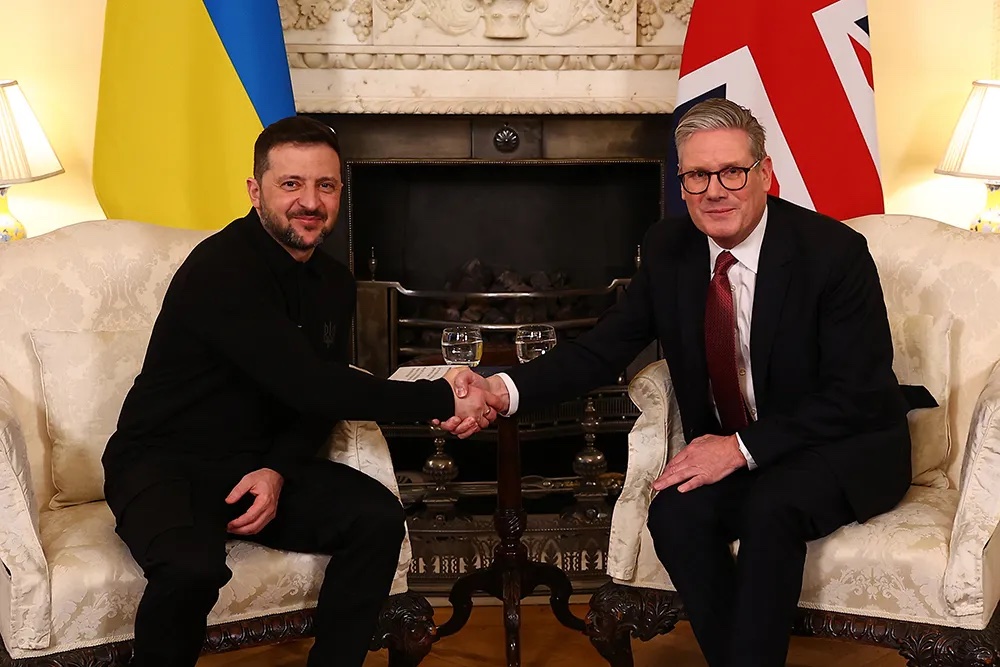There’s an old Russian joke about the difference between an optimist and a pessimist in Moscow. The pessimist believes that things cannot get any worse. The optimist replies: “Of course they could!”
These days the same joke could be made about Britain’s Conservative Party. As it slumps to its worst polling result since the dying days of Liz Truss’s leadership, Members of Parliament are debating which of two bad choices to make. Should they roll the leadership dice one more time or stick with Rishi Sunak and hope that for once his plan works?
Sunak’s team believe Tories will come to see a fourth prime minister in four years as a kind of madness
So far, it’s not looking great. The Spring Budget fell flat, the party vice-chairman defected to Reform and an ongoing racism row involving the party’s largest donor has now revived talk of mutiny. “The mood has definitely shifted,” says a member of the 2010 intake. “MPs are now seriously discussing the merits and demerits of switching leader. He’s not in the death zone yet though: there are some massive cons to it.”
The unhappiness isn’t confined to Sunak’s normal critics. “It’s not just the usual suspects,” says a former cabinet minister. “I was stopped by two sensible MPs last week telling me I need to back Penny Mordaunt.” No one thinks a new leader would save the Tories, but they hope to reduce the tsunami to a mere flood.
That so-called Mordaunt plot quickly splashed in the weekend papers. The rumor was that the right of the party was willing to row in behind her, should Sunak face a confidence vote. “Her seat is no sure thing and she’s already tried twice to be leader,” says a cabinet colleague of Mordaunt’s possible motivations. “So she is in a hurry.” Mordaunt — a naval reservist — has credibility with the Tory right because she pushed for an increase in defense spending. There is widespread unhappiness that Jeremy Hunt did not announce a boost to defense. But this enthusiasm for Mordaunt is offset by the number of Tory never-Penny-ers.
Ministers and MPs are quick to denounce those plotting as selfish, mad, bad and wrong. And behind the scenes there is a lot of paranoia about who exactly is pulling the strings. Mordaunt’s supporters suspect she is being played, used as a stalking horse. “The plotters are throwing out any names that will stick to provide them cover to install their favored candidate, whether it’s Suella [Braverman] or Kemi [Badenoch],” says a minister.
The bigger concern for Sunak is not that there’s an obvious rival: it’s that the qualities MPs look for in a leader are beginning to change. Campaigning has now started for the May local elections — a foretaste of the skills that will need to be on show in a general election campaign. This has led MPs to ask whether Sunak is really best to lead on the campaign trail. “This is a much bigger driver for the discontent than the Westminster gossip going around,” says one seasoned MP. “If you came in under Cameron or Boris, you know what it takes in an election campaign.”
MPs were cooped up in Parliament on Monday night, stripping out the Lords amendments to the Rwanda Bill. That night a new thought experiment came up in the various dining rooms and bars: the battle-bus test. If you were an MP in an at-risk constituency, as most now are, who would you most like to see getting off the bus to help you campaign? Would your heart jump or sink at the sight of Sunak? As one Tory MP puts it: “It’s a way of discussing if there is a better candidate to lead us than the current one.”
In Downing Street, all this commotion and conspiracy is regarded with concern. No. 10 is not yet a sealed bunker, as Gordon Brown’s No. 10 became. Sunak’s team knew from the offset that the odds were against them. But they also still believe that, once Tories think through the options, they’ll come to see a fourth PM in four years as the kind of madness from which the party might never recover. For now, Tory voters agree — albeit narrowly. A poll this week found that 45 percent think Sunak should stay, compared with 37 percent who want someone else.
Despite briefings to the contrary, Sunak has no plans to threaten rebels with an early election. He plans to answer the hysteria with the promise of stability. Sunak is aiming for a fall election, most likely October. He’ll campaign on improvements in the economy (which he hopes will be obvious by then) and perhaps, he thinks, a plane or two will have taken off for Rwanda. Sunak recently declared that this will be the year that the economy bounces back. He may be right. Inflation is falling and living standards recovering earlier than expected. “The two things we need are an interest-rate drop and the return of discipline,” says a former cabinet minister. Markets expect the Bank of England to drop rates to 4.75 percent by October, from 5.25 percent now.
The Conservative manifesto is already taking shape. The No. 10 policy aide James Nation is leading the charge and conversations with thinktanks and stakeholders are well under way. “Work on this is more developed than everyone realizes,” says a senior government figure.
This will be intensified in the coming months with ministers and MPs consulted. I understand five ministers have been tasked with outreach on the document: Hunt on the economy, Oliver Dowden on public services, Michael Gove on the Union, Claire Coutinho on energy and James Cleverly on crime. So far the bare bones of the document are to go “very big” on tax and to focus on policy areas where they view Labour to be weak.
Despite the fact that Keir Starmer and Rachel Reeves have ditched their £28 billion ($35 billion) green spending plan, Downing Street believes there is plenty of fun to be had with Labour’s plan for clean power by 2030. Decisions on issues such as the ECHR will be held off until the path is clearer on the Rwanda policy.
Is this all wishful thinking? As one member of Sunak’s inner circle puts it: “I am more worried about the next few months than the general election campaign.” Or in the — blunter — words of a cabinet minister: “Can the economy recover quicker than the party tears itself apart?” The answer to that question will decide the length of Sunak’s premiership and the terms of the election.
This article was originally published in The Spectator’s UK magazine. Subscribe to the World edition here.


























Leave a Reply